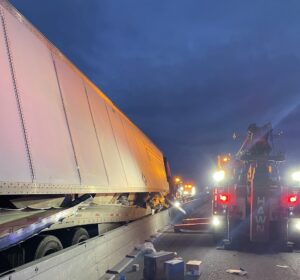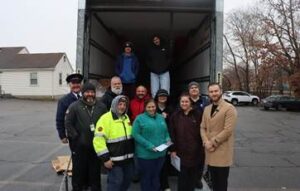WASHINGTON — The Senate voted 53-47 on Wednesday, April 10, to block a rule by the Federal Highway Administration (FHWA) that will impose greenhouse gas (GHG) emissions performance measures on state departments of transportation and metropolitan planning organizations.
Late last year, FHWA published its final rule despite the fact that it lacks any statutory basis.
Under the rule, state and local transportation agencies would be required to measure and report their current GHG emissions, set targets for reductions and report on the progress towards meeting those goals.
Consequently, this rule could lead to the delay or cancellation of some infrastructure projects.
“The FHWA’s GHG emissions performance measures lack statutory authority and are a flagrant example of executive overreach,” said ATA Chief Advocacy and Public Affairs Officer Ed Gilroy. “States are best equipped to determine their transportation needs, but this rule would create unnecessary bureaucratic barriers to access federal funds and scramble local priorities. Ultimately, this heavy-handed approach would undermine highway expansion projects, leading to greater traffic congestion and higher shipping costs that contribute to inflation.”
The resolution of disapproval, which was authored by Sens Kevin Cramer, R-N.D., and Shelley Moore Capito, R-W.Va., and Reps Rick Crawford, R-Ark., and Sam Graves, R-Mo., must now pass the House before heading to the president’s desk.
“We commend Sens Cramer and Capito and Reps Crawford and Graves for their leadership, and we applaud the Senate for advancing this commonsense legislation to reverse FHWA’s errant rulemaking, protect our supply chain and expand our transportation network,” Gilroy said.
Born in Pine Bluff, Arkansas, and raised in East Texas, John Worthen returned to his home state to attend college in 1998 and decided to make his life in The Natural State. Worthen is a 20-year veteran of the journalism industry and has covered just about every topic there is. He has a passion for writing and telling stories. He has worked as a beat reporter and bureau chief for a statewide newspaper and as managing editor of a regional newspaper in Arkansas. Additionally, Worthen has been a prolific freelance journalist for two decades, and has been published in several travel magazines and on travel websites.
















So, when do we begin to make advances in controlling our greenhouse gas emissions? How does the trucking industry feel about not having the highways to drive on all up and down our coast lines because they’re all under water from the effects of climate change? That will never happen, you say. I suggest you get your head out of the sand and start believing what our global scientists are telling us. Think about what your grandchildren and their children will have to say about what we did to the planet. Or maybe you’d just prefer to save the money.